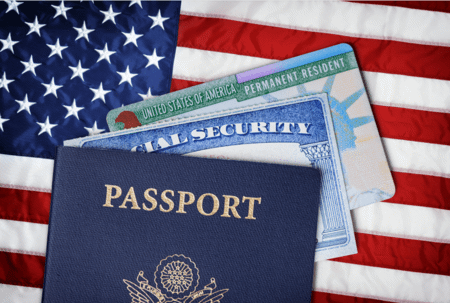The answer is yes. You are eligible to receive a nonimmigrant visa, as well as legal permanent residency in the United States if you are a victim of domestic violence.
According to the USCIS, the U nonimmigrant status (U visa) is set aside for victims of certain crimes who have suffered mental or physical abuse and are helpful to law enforcement or government officials in the investigation or prosecution of criminal activity. Congress created the U nonimmigrant visa with the passage of the Victims of Trafficking and Violence Protection Act (including the Battered Immigrant Women’s Protection Act) in October 2000.
In addition, you are eligible to receive a green card and become a lawful permanent resident under the federal Violence Against Women Act (VAWA), if you are the victim of battery or extreme cruelty.
While you may be able to obtain both the U visa and the VAWA, it is important to note that there is a difference in eligibility between them. It is up to you and your attorney to determine which would be the most beneficial for you to pursue. The general rule is that if your spouse is causing the domestic violence can get VAWA, but if you’re not married to the person who is the cause of the domestic violence, will still qualify for a U visa.
You may be eligible for a VAWA self-petition and lawful status if you meet one or more of the following criteria:
- Your spouse is a U.S. citizen or lawful permanent resident and has abused you
- Your spouse is a U.S. citizen or lawful permanent resident and has abused your child
- You are a child (under 21 years old and unmarried) of a U.S. citizen or lawful permanent resident who has abused you
- You are the parent of a U.S. citizen who has abused you.
For more information on the VAWA application process, see VAWA self-petition.
There is still hope, you are still able to file for U visa status if you are a victim of domestic abuse or other similar criminal activities, as long as you agree that you will be helpful to law enforcement in the investigation or prosecution of the crime. See here for all other requirements that could allow eligibility.
Victims of domestic violence who do not meet these criteria are not eligible for a VAWA self-petition, can apply for a U visa. Just like the VAWA application, you will need to provide evidence of this battery or abuse and prove that it violated U.S. law. However, the U visa more useful than VAWA in situations where, for example, the two of you are not married, or your abuser is a not authorized to live in the U.S. This is because with the U visa, you do not have to have a qualifying relative to apply. To learn about updates to the program, visit USCIS’s U Nonimmigrant Status Program Updates page.
Please note, regardless of what type of visa you apply for, you will need to submit plenty of evidence to show that you are eligible. Also, if your application is denied, you risk being placed into removal proceedings and ultimately deported. So, it is advisable to discuss your options with an experienced immigration attorney with experience in VAWA and U visas before filing any paperwork with USCIS. Your attorney will help you to determine what would be the best option in your case. Talk to an immigration attorney at Yekrangi & Associates today.
This is not an easy subject, if you are a victim of domestic violence and you need someone to talk to, please seek further resources here. If someone you love is being abused, speak up, reach out or call an attorney, you can save someone’s life.
